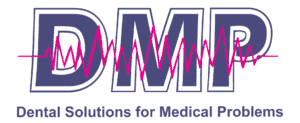Clenching or grinding teeth is medically known as bruxism. Did you know teeth grinding has been associated with sleep apnea?
Causes and Symptoms of Bruxism
Teeth grinding usually occurs as a result of stress and anxiety. Sometimes, teeth grinding also happens if you take antidepressants, drink alcohol, or smoke. Bruxism can also occur if you have an abnormal bite or crooked teeth. Usually bruxism occurs while sleeping, so most people will not be aware of grinding their teeth. In most cases, people will learn that they grind the teeth from their loved ones who happen to hear the grinding sound at night. Studies have shown that bruxism has been linked to sleep apnea. Sleep Apnea is a condition where your breathing activity is interrupted and you stop breathing during your sleep.
Constant headache is one of the most common symptoms of teeth grinding. Some other symptoms of grinding include aching of the face upon waking, temperature sensitive teeth, jaw pain, ear pain, and pain while chewing.
Treating Bruxism With Advancements in Medical Technology
Many treatment methods are available for teeth grinding these days. If stress is the reason behind your teeth grinding, check with your doctor for solutions to reduce stress. Sometimes stress-reducing therapies will help relieve teeth grinding. You can also try doing physical exercises or work with a physical therapist. Behavioral therapies and muscle relaxation techniques have been helpful for some people. But if you’ve tried those methods and you’re still grinding your teeth, talk to your doctor about oral appliance therapy with a Mandibular Advancement Device.
Things to Consider Before Choosing a Dental Clinic for Treating Teeth Grinding
There are a lot of options for dental clinics who offer treatment for teeth grinding. You have to be very careful when choosing a dental practitioner. Make sure you are dealing with a reputable dental office that has experience with the treatment of teeth grinding. Most importantly, make sure they have been trained in sleep disorders and understand the connection between bruxism and sleep apnea.
